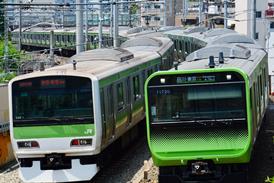Close menu
- Home
-
News
- Back to parent navigation item
- News
- Traction and rolling stock
- Passenger
- High speed
- Freight
- Infrastructure
- Policy
- Technology
- Ticketing
- Business
- Research, training and skills
- Accessibility and inclusion
- People
- Urban rail news
- Suburban and commuter rail
- Metro
- Light rail and tram
- Monorail and peoplemover
- Regions
- InnoTrans
- In depth
- Events
- Data
- Maps
- Tenders & Jobs
- Sponsored content
- Insights
Tram-train pilot scheme infrastructure costs up 401%
By Metro Report International2017-07-05T08:28:41

UK: Significant cost increases and delays to the UK’s pilot tram-train project are detailed in a report published by the National Audit Office on July 4.
Already have an account? LOG IN
To continue…
You’ve reached your limit of content for the month














